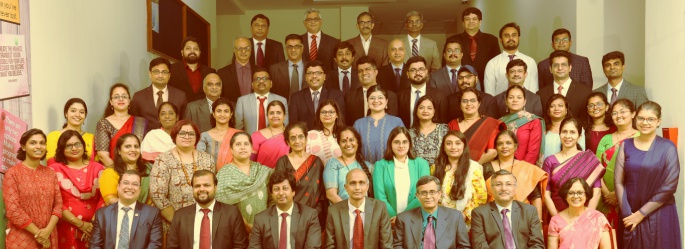“Budget 2022 expectations: Education sector seeks tax concession, low-cost loans and expansion of 80C deductions”
“For two years, the education sector is struggling in various ways. While the public institutions are looking for more budget allocations, private sector players in higher education need low-cost loans,” said Harivansh Chaturvedi, director of Birla Institute of Management Technology (BIMTECH).
The education sector is seeking a series of benefits — ranging from GST concession to low-cost education infra loans and an expansion of the income tax provision under Section 80C for deduction of education expenses –from the Union Budget 2022.
Besides, the education players are also expecting support for creating the infrastructure needed to implement the new National Education Policy (NEP), more corpus for mainstream education, access to better technology to reduce the digital divide in smaller towns, and a favourable business environment for edtech players.
When the Union Finance Minister Nirmala Sitharaman presents the Budget 2022 on February 1, the education experts will also be looking at two key pointers — whether the government has reduced the allocation in the revised estimate for 2021-22, and what’s the glide path for the sector the government is envisioning in 2022-23.
The union government had pegged an allocation of Rs 93, 224 crore as the budget estimate (BE) during the Union Budget 2021, which was Rs 6,000 crore less than the 2020 BE, but 9.5% more than the revised estimate (RE) for 2020-21. Of the total education outlay for 2021-22, the school education sector was allocated Rs 54,873 crore and the rest went to the higher education space.
“For two years, the education sector is struggling in various ways. While the public institutions are looking for more budget allocations, private sector players in higher education need low-cost loans as they seek to broaden capital investment to build new departments, faculties, and facilities in colleges and universities. Currently, the cost of finance is higher for educational institutions especially the private ones,” said Harivansh Chaturvedi, director of Birla Institute of Management Technology (BIMTECH).
Chaturvedi, who is also the alternate president of the education promotion society of India (EPSI), said education is a feeder sector of the economy and creates millions of jobs, and the sector is expecting more handholding and a clear policy path from the Union Budget to deal with the disruptions.
Satya Narayan R, founder and chairman of CL Educate, a listed education company, said “DBT for poor students for skill training and competitive exam preparation could be a big new initiative like LPG initiative”. Besides, “accelerated implementation of the mega-campuses program through financial resources and outcome goals to meet the GER and Higher education quality goals” will be beneficial.
“While the NEP gave a much-required impetus to online learning and assessments, the sector now needs budgetary allocations for the necessary infrastructure to be developed in the country,” said Sujatha Kumaraswamy, chief executive officer (CEO) of MeritTrac Services, an education test delivery, and assessment firm.
Sharad Bansal, co-founder of edtech firm Tinkerly said with the country witnessing the third wave of Covid-19, online classes have become mainstream now. “But they currently come under 18% GST slab. Relaxation on GST for online classes…will encourage more enrolment. It is crucial to bridge the demand-supply gap by providing internet connectivity, better infrastructure in tier 3 and tier 4 cities, and running schemes like One Student One laptop etc,” explained Bansal.
Gaurav Vohra, the chief business officer at UNext Learning said the prolonged effect of the pandemic necessitates renewed periods of e-learning and there is a pressing need to focus on nation-wide accessibility.
“The government has been emphasizing the setting up of National Digital Educational Architecture and is focusing on the development of the country’s digital infrastructure for the implementation of NEP 2020. However, innovation and emerging tech-based ed-tech enterprises continue to pay GST at 18%, unlike conventional school education, which has been excluded from GST. Reducing the taxation percentage will play a huge role in reaching learners from various strata of society,” Vohra added.
Girish Singhania, chief executive of EduBridge Learning said tax concession and reduction of GST will reduce the cost of education for learners and underlined that with the job environment changing, learning one skill along with formal education should be a mandatory requirement.
ConnectEd Technologies co-founder Lavin Mirchandani said given the utility of Edtech tools during the pandemic, he is expecting the government to announce schemes to make EdTech tools accessible to students across the country. “These schemes could pertain to Public-Private Partnerships (PPP), subsidies or direct bank transfers (DBT) to enable citizens to procure devices, connectivity and even subscription to educational services that’ll enable them to garner knowledge amidst closure of their educational institutions”.
Rajiv V. Shah, a professor of economics at T A Pai Management Institute in Manipal said section 80C allows for a parent to deduct payment of school tuition fees for up to two children.
“However, this deduction is subject to the overall deduction of Rs. 1.5 lakh for sections 80C, 80 CCC and 80CCD. There is a need to allow a full deduction of tuition fees of up to two children under a separate section that does not fall under the limit of Rs 1.5 lakh and thus supports fee-paying parents and the education sector.”
Further, “the scope of payment could be broadened to include part-time education and distance education as well, considering current realities. In a world where constant upgradation is the key for employees, fees paid for the education of self or spouse should also be considered for the deduction,” Shah added.




